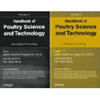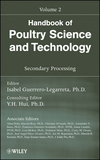A proposed Poultry Fair Share Act, proposed by legislators in the Maryland General Assembly, would require poultry companies to pay a 5-cent tax into the Bay Restoration Fund for each chicken it supplies to a farmer.
The bill is expected to be introduced by Sen. Richard Madaleno Jr., D-Montgomery, and Delegate Shane Robinson, D-Montgomery.
“A healthy bay is important to Maryland’s economy, and all Marylanders benefit from making the bay cleaner,” Madaleno said in a statement. “So it’s important that all major polluters of the bay pay their fair share, and this legislation ensures that one of the biggest sources of pollution begins to do just that.”
A spokesman for Food & Water Watch estimates that the tax would raise about $15 million annually, reports www.delmarvanow.com.
“It would hold the big companies partially accountable for their contributions by requiring them to pay their fair share toward necessary cost of bay cleanup,” said Michele Merkel.
Members of the poultry industy disagreed.
“That bill, if passed, will guarantee that there won’t be any poultry left in the state of Maryland,” said Worcester County Commissioner and farmer Virgil Shockley.
Executive Director of Delmarva Poultry Industry Inc., Bill Satterfield, said the sponsors of the bill are likely not informed about the millions farmers have spent on best management practices such as planting trees and grasses near poultry houses, chicken manure storage buildings, chicken carcass composters, manure transport programs and pads at the ends of chicken houses.
“It appears the supporters of this concept are not aware of the tens of millions of dollars that chicken growers and chicken companies have spent in recent years on environmental programs,” Satterfield said.
Julie DeYoung, spokeswoman for Perdue Farms, said since 2001 the company has spent $45 million on AgriRecycling, which has not yet brought in a profit.
The program has relocated 1.5 billion pounds of poultry litter.
“Perdue remains the only poultry company in the Chesapeake Bay region providing a large-scale alternative to land application of poultry litter,” DeYoung said. “Perdue continues to explore other environmentally responsible uses for poultry litter to be able to provide our farm partners additional choices, should they need them to meet current or future regulations.”






